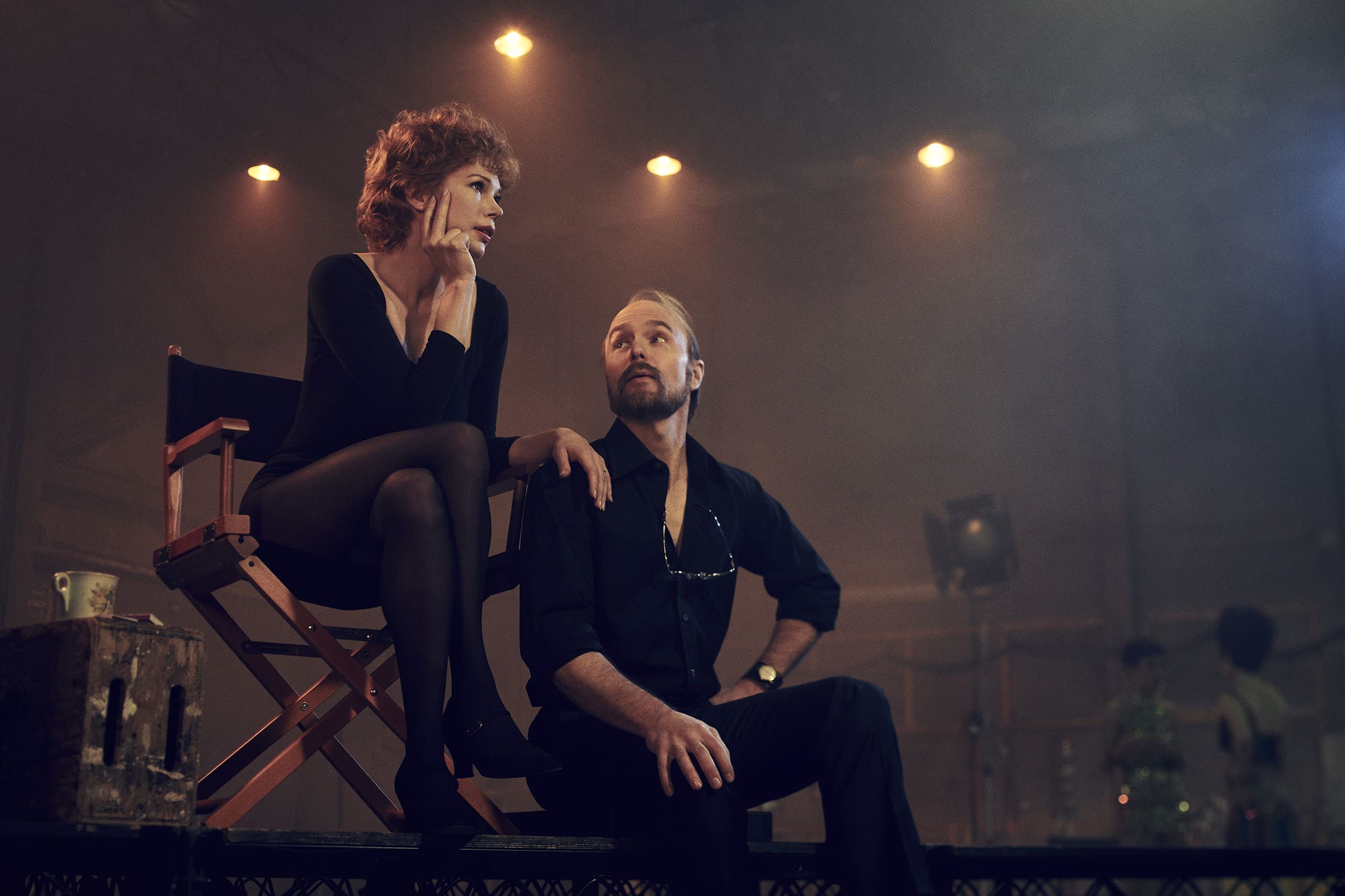
Adapting Bob Fosse’s life to the screen is a tall order. After all, the man already did it himself. All That Jazz is commonly considered one of the best cinematic autobiographies of all time, and its surreal, warts-and-all look at its subject holds up 40 years later. This begs the question: what can Fosse/Verdon do differently? Would something more conventional inevitably pale in comparison? And, if a more artistic approach is taken to the story, wouldn’t it just feel like a rehash of a great movie? Based on the miniseries’ first chapter, the answer of how to best tell Fosse’s story onscreen in a post-All That Jazz universe remains unanswered. But Fosse/Verdon still makes for compelling television… how could it not, when its subject is so captivating?
Beginning in 1969, as Bob Fosse prepares to direct a screen adaptation of Sweet Charity, the film bounces around the last 19 years of the titular man’s life, a storytelling device that has the same morbid DNA of All That Jazz. In the first episode, we see glimpses of how Fosse convinced Hollywood producers to give him the chance to adapt Cabaret, and how he fought to get his vision onscreen after they let him direct it. There are also glimpses to his childhood, where he faced intense pressure from his father. All this works… but we’ve seen much of it before.
What we haven’t seen, however, is Gwen Verdon’s perspective of these events. Verdon is, of course, a legendary Broadway dancer, a creative partner of Bob Fosse and, later, his wife. While the premiere episode only teases what offering these dueling points of view could bring to the series, those glimpses are tantalizing and offer some of the best drama.
There are clichéd “wife-at-home” subplots, as Verdon deals with a troubled child and doubt about her husband’s fidelity while he’s away filming Cabaret. These scenes are a bit by-the-numbers, but they have a sort of energy to them that works (more on that later). But, whenever the film shows how Fosse and Verdon worked together, and how their complicated relationship influenced their work and career choices, the show becomes a fascinating exploration of art. Going forward, there needs to be more of this.
But the best scenes so far are, unsurprisingly, the musical numbers. In the premiere, we’re given glimpses of “Hey Big Spender,” one of Sweet Charity‘s most famous musical numbers, as well as two of the more iconic numbers from Cabaret. These are, of course, great songs, and it’s a thrill to see them performed again for us. But this is more than just a nostalgic callback to classic works of art. These musical numbers break down the choreography, production design, costumes, and vocal work to show how these famous songs are brought to their best forms. For any theater lover, it will be exhilarating, and all credit should go to director Thomas Kail (best known for a little play called Hamilton). His style and energy, along with some great editing, elevates the whole series and justifies watching the rest of the episodes.
The performances are also, unsurprisingly, great. This is a nice change of pace for Sam Rockwell, who seems to have a fixation on playing controversial figures and white supremacists on film screens as of late. He’s quite good here, distinguishing his take on the legendary director from that of Roy Schneider, who was nominated for an Oscar for All that Jazz. But this is really Michelle Williams’ show, and another reminder that we take her for granted in Hollywood. She’s magnetic and charming, boasting chemistry with virtually anyone she shares the screen with. But Williams’ performance is made all the more impressive when compared to her entire filmography; the subtle decisions she makes, whether it be in her accent or mannerisms, reveal just how deeply lived-in she is for every role she takes. No two performances are the same, and this one performance should earn her an Emmy nomination, if not the win. Elsewhere, Kelli Barrett does a phenomenal Liza Minelli impersonation, and we can look forward to the vastly underrated Margaret Qualley joining the cast in the coming weeks as Ann Reinking.
The challenge Fosse/Verdon faces in the coming weeks will not be easy to complete. The bar set by All That Jazz is impossibly high – the miniseries would have to be all-time-good in order to even hold a candle. But, at the very least, the first episode promises us this: talented actors, great music, and electric direction. A standard story? Perhaps. But there’s still a lot to love.
Overall rating: 8 out of 10

